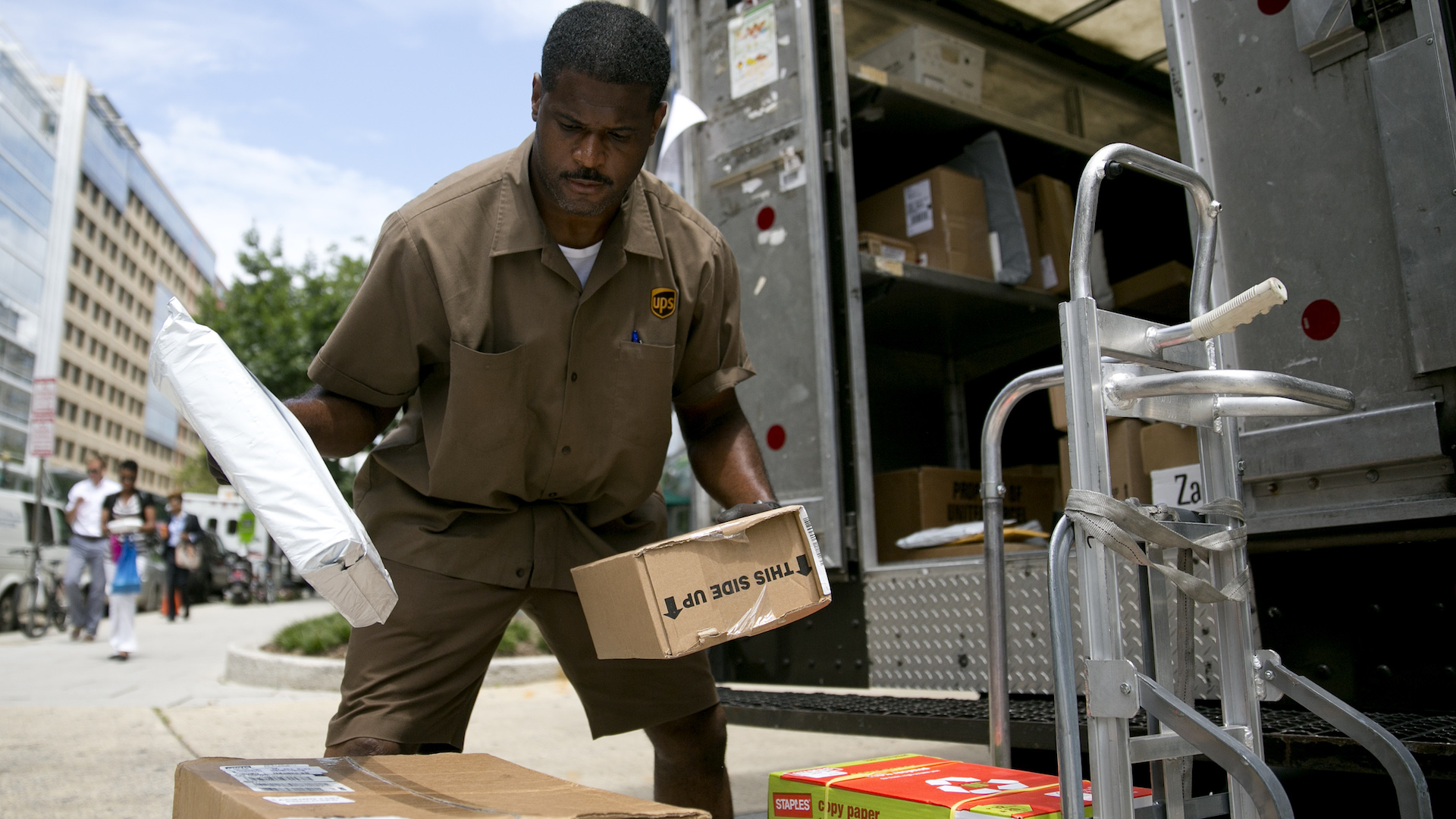

We may earn revenue from the products available on this page and participate in affiliate programs. Learn more ›
This week, during initial talks about future contracts, the Teamsters union vocalized its strong disapproval of UPS utilizing drones or driverless vehicles for package deliveries. The current state of drone deliveries is still very much nascent, although major companies like Amazon and UPS have already begun testing unmanned delivery technologies, as well as patenting any potential game-changer imaginable.
Reportedly, the Teamsters union is adamant on hiring an additional 10,000 employees to the workforce, as well as ridding itself of the late-night deliveries we’re all so accustomed to. These bargaining sessions have only just begun, but will certainly have massive repercussions on the way UPS does its business. An estimate of 260,000 UPS employees will be affected by the final agreements resulting from these talks, which come to a close in July. According to The Wall Stree Journal, the International Brotherhood of Teamsters’ National Negotiating Committee provided UPS with an 83-page document—a modified version of the prior agreement.
Here at Aerial, we’re pretty big proponents of drone delivery becoming a standard of the modern world. With a smaller carbon footprint and ever-increasing sophisticated, AI-infused behavior, it makes sense to transition to individual aerial deliveries, not to mention the convenience on behalf of the customer. On the other hand, one completely understands and empathizes with the aversion truck drivers have toward this stark, autonomous future. If it feels like their jobs are being endangered by the incredible exponential growth in technology, it’s because they are. Hence, a series of discussions soon to be cemented into policy, with one side trying to slow things down in order to survive, and another eager to march into the fully autonomous future.
According to WSJ, the Teamsters are also firmly against deliveries after 9 p.m., as well as extending those hours during peak months such as November and December, when workers often found themselves working overtime.
UPS spokesman Steve Gaut is eager for the company “to remain a highly competitive provider of reliable service” once these negotiations are done. “UPS will negotiate in an environment of mutual respect and looks forward to rewarding employees for their contribution to our success,” said Gaut.
While it’s clear that these statements are positive and clean, the exact sort of press and marketing big companies try to maintain at all times, it’s unclear what the future here holds. UPS will absolutely not toss drone deliveries overboard, as they’re too practical and logical a solution the more time goes on. On the other hand, how would a lay-off of every single delivery person look? These are the two extremes being straddled here, with a hopefully mutual agreement somewhere in between being the outcome.
